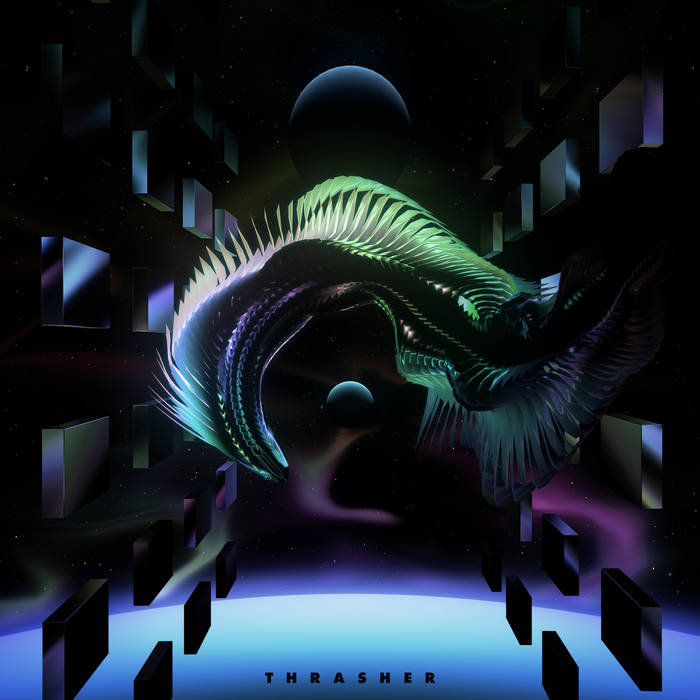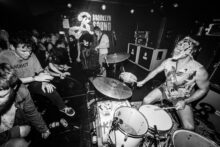In the early 2000s, whilst I was inhaling silly quantities of cannabis and playing music-related video games such as Frequency and Guitar Hero, Brian Gibson was working for Harmonix as the lead artist on those exact games.
The Lightning Bolt bassist quit the computer game industry back in 2015, yet he hasn’t been able to stay away entirely. In 2016 he recorded the soundtrack for cult rhythm-violence video game THUMPER and, more recently, the spatial audio score for VR assault THRASHER. A game described as “a mind-melting arcade action odyssey and visceral audiovisual experience.”
The soundtrack clearly has a pivotal role in the gameplay and, as it was created by one half of the most visceral, vital, and renowned noise rock acts ever to set up on a venue’s floor, you’d rightly expect to be strapping yourself in for a serious dose of grinding bombast. But that’s not quite what you get with THRASHER.
Album opener ‘Metal Maze’ starts things off in vaguely familiar territory. Fiery, arpeggiating bass riffs loop and weave, building the pressure before drizzling out anticlimactically. Compared to the Bolt’s usual scrawny intensity this is a clean-cut affair. The sonic territory is evidently different with their winding, frenetic fretting transposed into a smooth, glazed space.
Fourth track, ‘Mist’ feels like a gentle expansion of Terry Riley’s perambulating minimalism. ‘Melting Menace’ overlays Nils Frahm-esque electronics with twinkly notes of silver, whereas the slaloming tones and string mimicry of ‘Monolith’ offer an exultant air akin to the work of Kiasmos.
There are still moments of tension amongst the uplifting ambience. ‘Magma Skull’ sounds like a train charging through ill-lit underground stations, whilst ‘Mica’ is a speed race of agitated bats exiting the underworld. ‘Magenta Machine’s new age harmonic cascades are punctured, occasionally, with an unnerving and slightly discordant root note. Similarly, ‘Timekeepers’ (the only track title that doesn’t begin with an ‘m’) lumbers and bumps. Its broken cadence reminiscent of someone attempting to run with their foot in a bucket.
Lightning Bolt’s bedlam feels light years away. This is clean, clipped, sanitised. A neater but also less invigorating version. The edges are rounded. Those sharp corners sanded down. The insane heart, capable of the spasmodic pumping needed to keep ketamine-snorting hummingbirds alive, reduced here to a timid flutter.
The clue lies within the sedentary drums. In Lightning Bolt, Gibson’s bass playing often anchored the chaos of Brian Chippendale’s whirligig drumming as the band threatened to supernova. Here, the programmed beats merely provide a predictable trudge for meandering electronics.




